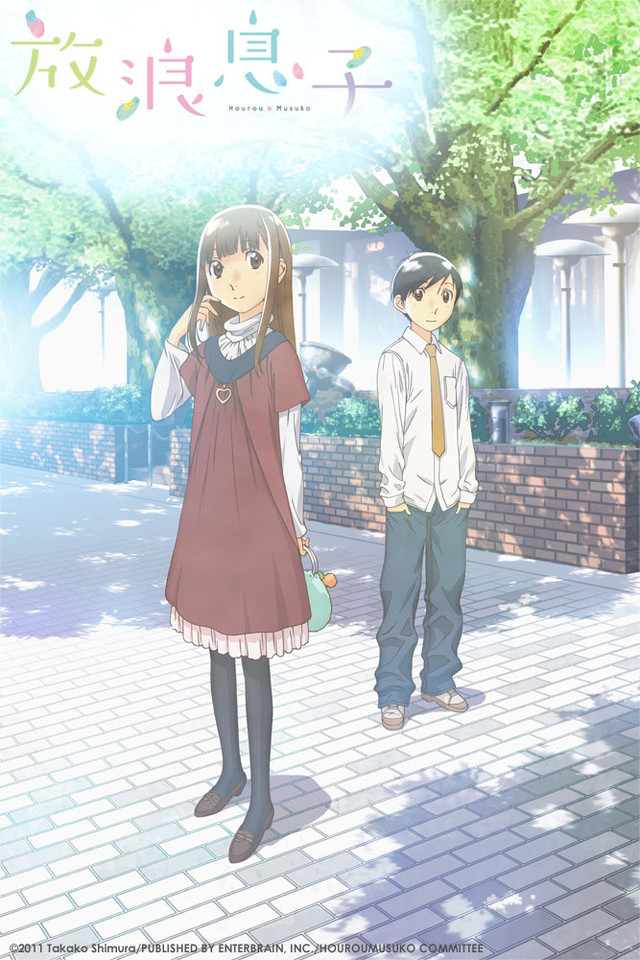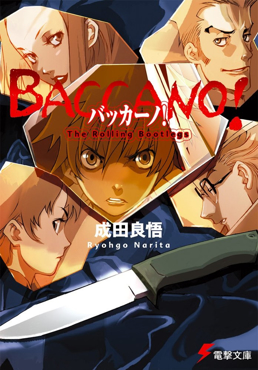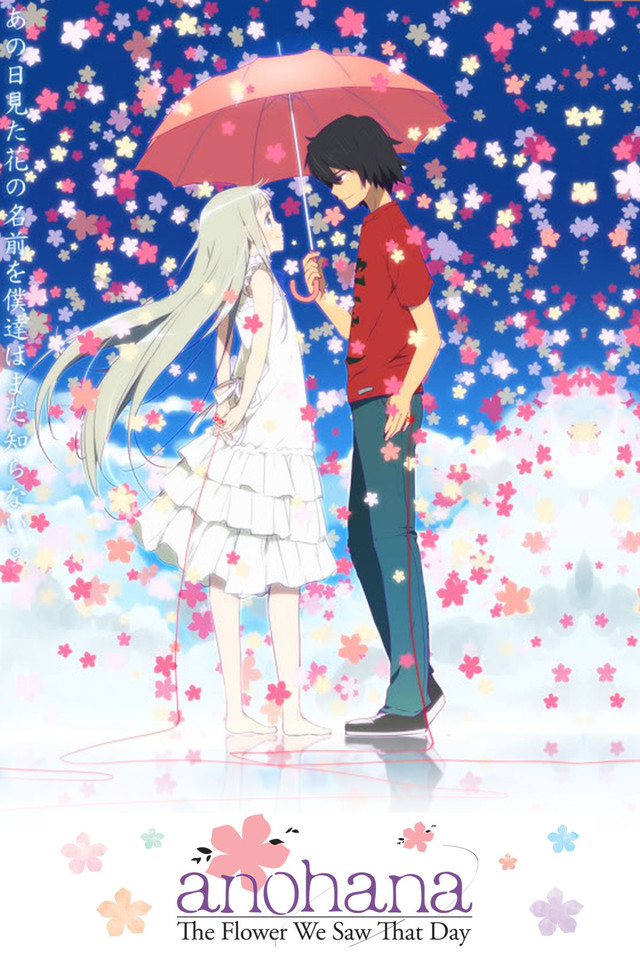My #5 is probably the best science fiction anime I’ve ever
seen, which makes it pretty easy to guess what it is. But other outstanding
science fiction anime include: Neon
Genesis Evangelion and Time of Eve.
I had Evangelion really high last
time around, and I almost forgot it again this time around. But this is another
one of those shows where, if this were a top 15 list, it would definitely make
it on the list. But Evangelion has
its flaws, including some sketchy direction from Hideaki Anno. But what it’s
trying to do is, I think, still unmatched in any media to date. But it just
falls short. Again, pushed off by pandering to my own desires and putting both One Piece and K-ON! onto the list, because it definitely deserves to be on here.
On the other hand is Time
of Eve, a really subtle six-episode ONA by Yasuhiro Yoshiura. While I’m at
it, I’ll also mention Aquatic Language
and Pale Cocoon, his other two works
that I’ve seen. All of them are extremely subtle and all of them are extremely
good. The dub for Aquatic Language is
extremely forgettable, but the sub and the story that’s packed in those nine
minutes is great. I think that what Aquatic
Language was trying to do was both expanded on and done to a greater, and
better, degree in Time of Eve. I also
put Time of Eve really high up on my
last list, but I’ll admit that my memory is hazy of the show as a whole now.
But you can import the BD for pretty cheap now (which is what I did!). What it
does for both Asimov’s three rules and for blurring the lines between human and
android are absolutely amazing. Probably better than what the Ghost in the Shell series did.
Which, surprising no one, is the #5, Ghost in the Shell. The movies blur that line between human and
android a lot better than the series, I think. But Mamoru Oshii loves to screw
with you like that and the series had a lot more important things to say about
government corruption and other things of that nature.
What I really liked about GitS though was the combination of character episodes and plot episodes (called “stand alone” and “complex” episodes in the first half and “dividual,” “individual,” and “dual” episodes in the second half). I’ll admit that the series really dragged for me in the first half. I just didn’t care to see so many front-loaded character episodes all at once. Something that anime does a lot, and I really like it for, is introducing the ongoing conflict early and keeping that going throughout. GitS didn’t quite do that as well for me. But that is hardly a detraction from the series as a whole and is merely my personal preference.
What I really liked about GitS though was the combination of character episodes and plot episodes (called “stand alone” and “complex” episodes in the first half and “dividual,” “individual,” and “dual” episodes in the second half). I’ll admit that the series really dragged for me in the first half. I just didn’t care to see so many front-loaded character episodes all at once. Something that anime does a lot, and I really like it for, is introducing the ongoing conflict early and keeping that going throughout. GitS didn’t quite do that as well for me. But that is hardly a detraction from the series as a whole and is merely my personal preference.
Having said that, I really liked the Laughing Man plot
better than the Individual Eleven plot. Though I liked the “dividual” episodes
more than I liked the “stand alone” episodes. So it’s a toss-up for what series
I like better; though I think I’ll say that I liked 2nd GIG better
than the first.
What it basically boils down to is this: Do you generally
like science fiction or cyberpunk series? If the answer is yes, and you haven’t
seen GitS yet, then go watch it.
Ok, #4.
The also-ran for #4 is His
and Her Circumstances. Hideaki Anno’s other great work, but he had to leave
mid-project due to creative differences between him and the original mangaka.
Despite this, the story that Masami Tsuda had been trying to tell is absolutely
amazing and no amount of sketchy directing or production values is going to
ruin that. But the manga would almost certainly make a top 10 list. The anime,
however, struggled to finish and left a crap ton of things unfinished. Thus it
misses out.
The #4, though, is Usagi
Drop. This is another fairly new series, but it’s one of the best I’ve seen
ever. Granted, I haven’t seen a whole bunch of old things like Revolutionary Girl Utena and the like.
What really draws me to the show, though, is just the story
that Yumi Unita is trying to tell in a single parent trying to raise a child.
The characters of both Daikichi and Rin are so complex and so great that you
root for them and you love them as if they were real people. I suppose that’s
the goal in any show, but you almost feel like you’re there when you’re
watching Usagi Drop.
This is also another one of those shows, like Space Brothers, where this could be a
live action production, but this being in animation really brings it to life.
What this show, and the next show on the list, does really well is tackle
legitimate issues (in this case, of single parenthood and the effects that it
could have on the child as a result) in very tactful ways. At the same time, it
makes you slowly fall in love with the characters as they move through their
own lives. You find yourself wanting to just watch them talk to each other and
see what happens.
Similar to K-ON!,
this show has some pandering to fans with Rin, but it’s hardly as detracting as
it could be in K-ON! But despite
these minor shortcomings, it’s a show that’ll capture a lot of people’s hearts,
on a similar level to the Ghibli films. It’s really too bad that it didn’t get
a dub, but at the same time, a lot might be lost with Rin’s performance if they
did make a dub. But I do regret not getting a dub for this show. Alas, NIS
decided against it.
Now we’re in the top three, and right on to #3.
I have no also-rans for #3, nor do I for #2. But prepare for
also-rans in #1! Anyway, my #3 show is Wandering
Son. While Usagi Drop is trying
to tackle single parenting and things of that nature, Wandering Son is tackling a much larger beast: It’s trying to
tackle the issues of gender identity, and doing so while the characters are
going through puberty. Double confusion for the protagonists, Nitori-kun and
Takatsuki-san.
And that’s really what grabbed me so completely into the
series. The relationship between these characters and just seeing them grow is
so compelling and Takako Shimura’s writing is just so good and so amazing that
you want to see these characters live their lives through these really complex problems.
I suppose the only real flaw of this series is the mature
characterization of everyone, which is oftentimes stretching belief for the
mentality of your typical middle schoolers. But that’s hardly a major
detraction from the series, as the stories that Wandering Son is trying to tell hold much more importance than
these detractions.
Really, what makes me like this series so much is that it
touches on a subject that most US productions wouldn’t touch with a 10-foot
pole. And it executes it in such a way that US productions wouldn’t touch with
a 20-foot pole. That’s certainly something I really admire about anime; is that
it’s willing to tackle these touchy issues, and oftentimes in a very tactful
manner.
But I think I’ve rambled on enough about Wandering Son. It’s a very understated
series that will get looked over by mere premise. However, it’s definitely
worth checking out and sticking out, given that it’s only 11 episodes.
So #3, Wandering Son.
Onto #2.
My #2, and former #1, is Baccano!
This show really does everything I want in show. It has
great characters and it has a great ongoing plot. The folks at ANN said that
you could jump into any scene and just have fun watching it, and I’ll have to
agree with that. You won’t understand everything that’s going on in the scene,
no. But by god, you’ll have fun watching it. This is a large cast of a little
more than a dozen and you find yourself rooting for every single one of them by
the end of the series in some little way.
I think one of my favorite things about the series is that
it has amazing rewatch value. You get everything you need to enjoy the show
watching it the first time, but you gain a greater and greater understanding
for the series as a whole as you watch it two, three, four more times.
The characters in Baccano!,
though, really bring the story together. Where would this show be without
people like Isaac and Miria? Or Firo? Or Ennis? Or the conniving Szilard
Quates? Even minor characters like Elmer C. Albatross and the Devil himself
play a seemingly major role in the story as a whole. And secondary characters
like Czeslaw Meyer and Maiza Avaro really bring the rest of the cast together
to form one, cohesive whole. Last but not least, not enough can be said about
Ladd Russo. Every time one of these characters is on screen, I just want them
to be there forever. They’re easily likable and understandable, and they really
have to be for the way the story is being told.
The disjointed narrative, told in chronological order
through the various years, but the years themselves told very much out of
order, make this show one of the most unique you’ll pick up ever. If this were
told in a strictly chronological order, it would lose a lot of its umphf and
strengths. The narrative structure, much like the music in a Yoko Kanno or Yuki
Kajiura composed series, could very well be called a character unto itself. I
wouldn’t, and it would be a stretch to do so, but you could make the argument.
Anyway, overall, Baccano!
is a lot of fun. I think that no matter who you are, you will find some
enjoyment out of Baccano!, if not
from the show as a whole. It has a great mass appeal and a great dub cast,
which only makes it more accessible.
Finally, the home stretch. #1.
The also-rans for the #1 spot are just the works of
Shinichiro Watanabe, specifically Cowboy
Bebop, Samurai Champloo, the
“Baby Blue” short that was part of Genius
Party, and Kids on the Slope. No
matter what this man is doing, it is goddamn brilliant. The only reason they
remain off the list is because the shows, while really amazing, just didn’t
resonate with me as much as they did with other people. My preferred show is a
slice of life, as evidence from three of my top 5 being slice of life shows.
But, with the exception of Kids on the
Slope, which I enjoyed the most out of the four, they just didn’t resonate
with me as much as the other shows. They’re really, really good, and Bebop and Champloo are definitely worthy of an objectively best top 10 list
and as great introductions to anime to people who have never seen a minute of
anime. But they just don’t make the cut.
But my #1 show that I have ever seen is Anohaha: The Flower We Saw That Day (in Japanese, ano hi mita hana no namae o bokutachi wa
mada shiranai, which translates to we
still don’t know the name of the flower we saw that day).
This show is really, really great. I finished this show and wanted to watch it again, just to have that same feeling I got when I finished it the first time. I so very rarely have that desire, but Anohana did it for me.
This show is really, really great. I finished this show and wanted to watch it again, just to have that same feeling I got when I finished it the first time. I so very rarely have that desire, but Anohana did it for me.
Anohana really
captures what it’s like to grow apart as a result of anything (in the show, the
death of their close friend, which is revealed first episode, I think). Coming
back together for these characters is a painful, and oftentimes awkward,
process that none of them really want to do, but they’re all going through.
The show also highlights the scars that one has after
something as traumatic as the death of a friend. These people are going through
a really tough transition, and have been for the last few years. While the
situations they’re allowed to be in are sometimes stretching belief, I think it
only emphasizes just how hurt everyone is.
What I really liked it for was everyone trying to overcome
this huge trauma. The five characters keep doing these superficial things and
it’s only when they finally give it their all do they really overcome
everything that’s happened to them.
So despite Anohana’s
sometimes unbelievable situations, it really knows how to hit you right in the
feels and tell a great, if relatively simple, story with great, and not at all
simple, characters. But the decision really came down to personal preference. I
just love slice of life shows, this one in particular.
Well, there you go. My #5-1 best anime that I’ve seen. I
haven’t seen some supposedly really good ones, like Rose of Versailles, Revolutionary
Girl Utena, and Moribito. It’s
also been a while since I’ve seen Wolf’s
Rain. I also decided to not include movies on this list, as those will be
going in a separate list. Top lists like this really change for me based on my
mood, but every show mentioned here will always be a mainstay in my favorite
shows that I’ve seen. At least that much is very unlikely to change in the
future.





No comments:
Post a Comment